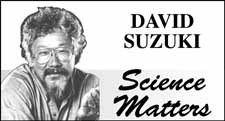Hedy Lamarr was once regarded as the most beautiful woman in Hollywood. In 1933, she scandalously appeared nude in a Czech film called Ecstasy, which brought her to the attention of U.S. movie moguls.
Through the 1930s '40s, and '50s, she starred in some of Hollywood's biggest hits alongside leading male celluloid idols like Spencer Tracy and Clark Gable. She was also a part-time rocket scientist. In fact, we have her to thank for some of the technology used in cellphones and the Internet.
In 1940, Ms. Lamarr and avant garde music composer George Antheil devised and patented a communications system based on "frequency hopping" for use in radio-guided torpedoes. Their invention was inspired by player piano rolls - spools of paper with holes that "told" automatic pianos which notes to play. Frequency hopping is now used in much of our wireless communications technology.
Because the invention was long classified as top secret, her contribution wasn't recognized for years, and many people were surprised to learn that a glamorous star could also have a brilliant scientific mind.
Why should we be surprised? Are you surprised to learn that, during high school, Oscar winner Natalie Portman was a straight-A student and semifinalist in the rigorous Intel Science Talent Search for her investigation into an environmentally friendly way to convert waste into energy and that she went on to study neuroscience and the evolution of the mind at Harvard? During her studies, she still found time to act in a string of major movies.
According to a recent article in the New York Times, Ms. Portman and Ms. Lamarr are not alone. Danica McKellar had roles in shows including The Wonder Years, The West Wing, and NYPD Blue. As a math student at the University of California, Los Angeles, she also helped come up with a mathematical theorem that was named after her and her collaborators.
Mayim Bialik, who stars as neurobiologist Amy Farrah Fowler in the popular TV show The Big Bang Theory, really is a neurobiologist, with a PhD from UCLA. She also played the lead role in the '90s TV show Blossom.
This isn't about overachieving stars. Rather, it's a way of pointing out that science isn't just for geeky nerds - and it isn't just for guys. But it also says something about Western society's obsession with celebrity and its lack of interest in science. We pay far more attention to these people for their movie roles and stardom than for their intellectual accomplishments.
Contrary to what the endless columns in newspapers and magazines or minutes of broadcast time would lead you to believe, celebrity, sports, business, and politics are not the most important issues. The reality is that the most powerful force shaping our lives today is science, whether it's in industry, medicine, or the military. We cannot control the ideas and inventions unleashed by science if we, as a society, are scientifically illiterate.
We elect our politicians to represent us and lead us into the future, and they must make decisions to deal with climate change, overpopulation, endocrine disrupters, stem cells, cloning, genetically modified organisms, toxic pollution, deforestation, and a host of other issues that require some understanding of science.
The lesson we should take from people like Ms. Portman, who also created an environmental video in her childhood, is that it's fine to be entertained and to entertain, but that shouldn't preclude us from taking an interest in the world around us and in the science that shapes so much of our place in that world and that helps us to understand it.
We can't all be scientists, just as we can't all be movie stars, but we can take the time to learn more about science and its application in understanding and solving some of the challenges we face in the modern world.
I've only had one small role in a short fictional film, and I can tell you, it's tedious work. I'd much rather be a scientist. But I'm glad there are movie stars who are interested in science. With so many poor role models in the movie business and in politics, it's refreshing to see some who are setting good examples.
Written with contributions from David Suzuki Foundation communications and editorial specialist Ian Hanington.
Learn more at www.davidsuzuki.org.




